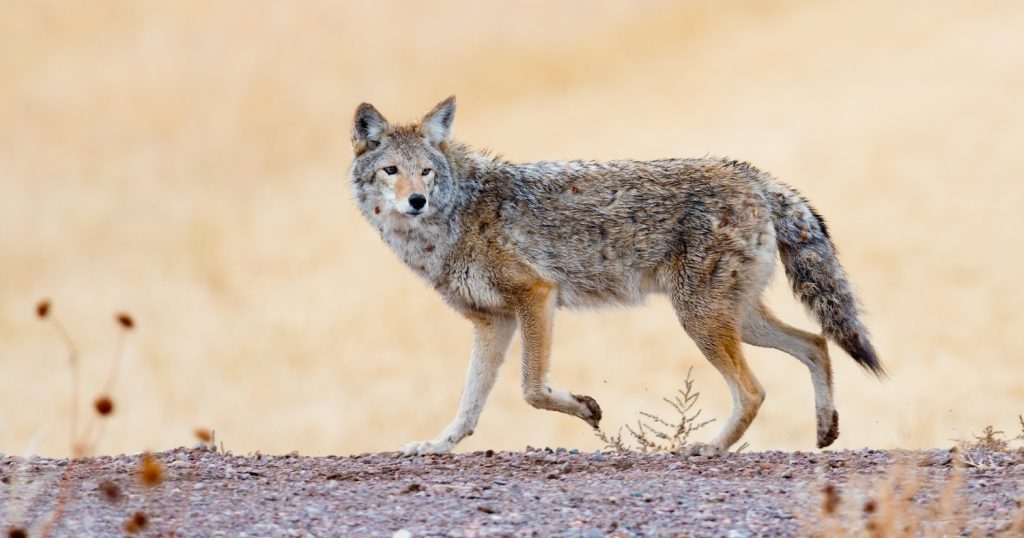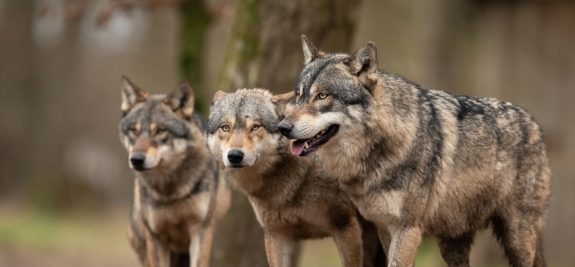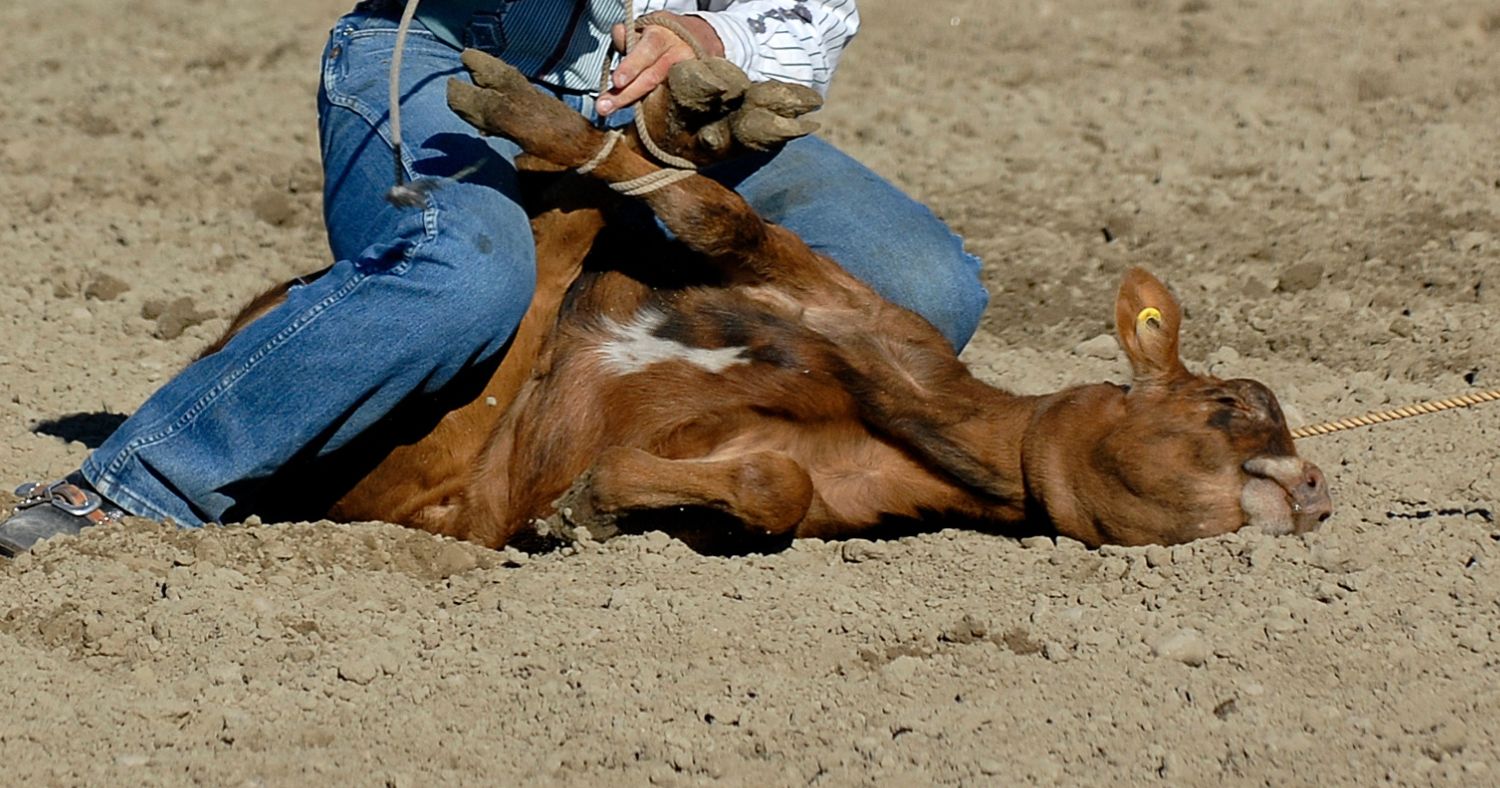A big win for wildlife! The Government of Alberta has ended the use of Compound 1080 to poison wolves, following years of animal advocacy from Animal Justice, wildlife protection groups, and compassionate citizens. The move, carried out by Alberta’s Fish and Wildlife division, took effect in December 2024, and was recently confirmed by the province.
While Alberta has not completely banned the poison, this confirmation marks a turning point. But the fight isn’t over—Compound 1080 remains on the landscape, and the risk to wildlife continues. Animal Justice is pushing for a full ban on this deadly poison.
What Is Compound 1080?
Compound 1080 (sodium monofluoroacetate) is a highly toxic chemical used for decades to kill wild animals like wolves and coyotes, who share territories with farmed animals. It causes extreme suffering: animals may vomit, convulse, hallucinate, and experience seizures before dying from cardiac or respiratory failure.
The poison is non-selective. Any animal who consumes a bait—or scavenges a poisoned body—is at risk. That includes endangered species, scavengers, and companion dogs.
Alberta has long used Compound 1080 on wolves as a form of poisoning. Scientists and animal advocates condemn the practice as cruel and ineffective. This peer-reviewed article by Sadie Parr (WeHowl) and Hannah Barron (Wolf Awareness) explores the risks of Compound 1080. Both are respected conservation biologists who outline the ecological and ethical problems with using poisons in wildlife control.
A Coalition Pushes for Change
Animal Justice has worked closely with organizations like Wolf Awareness, Coyote Watch Canada, WeHowl, and Animal Alliance of Canada to end wildlife poisoning in Canada. In 2024, we worked with a coalition that filed a Notice of Objection under the Pest Control Products Act, calling on Health Canada to cancel the registration of Compound 1080—a move that the vast majority of Canadians want to see.
Compound 1080 Still Threatens Coyotes & Other Animals
Although Compound 1080 is no longer used to target wolves in Alberta, it remains legal for use on coyotes. Because this poison is highly toxic and non-selective, it continues to pose a serious threat to other wildlife—including wolves, hawks, skunks, black bears, and even pets. These animals face serious risks when they eat poisoned bait or the bodies of poisoned animals. Secondary poisoning remains a widespread and ongoing concern.
Animal Justice is urging both federal and provincial governments to adopt humane, science-based alternatives to predator control—alternatives that protect animals without causing prolonged suffering.

Canadians Want a National Ban
Public opinion strongly favours ending the use of poisons like Compound 1080 in wildlife management, with many Canadians advocating for more humane and effective methods to prevent conflicts between predators and farmed animals.
After years of advocacy from groups including Animal Justice, Canada banned the use of strychnine, another brutal poison previously used to kill predators, in March 2024. Advocates say now is the time to follow through with a national ban on Compound 1080 as well.
Take Action: Help Ban Wildlife Poisons
The end of Compound 1080 use on wolves in Alberta is a victory—but it’s no guarantee wolves won’t suffer again. As long as this poison remains legal, coyotes, wolves, and countless other animals remain at risk. Canada must adopt a national policy change to stop the suffering for good.




